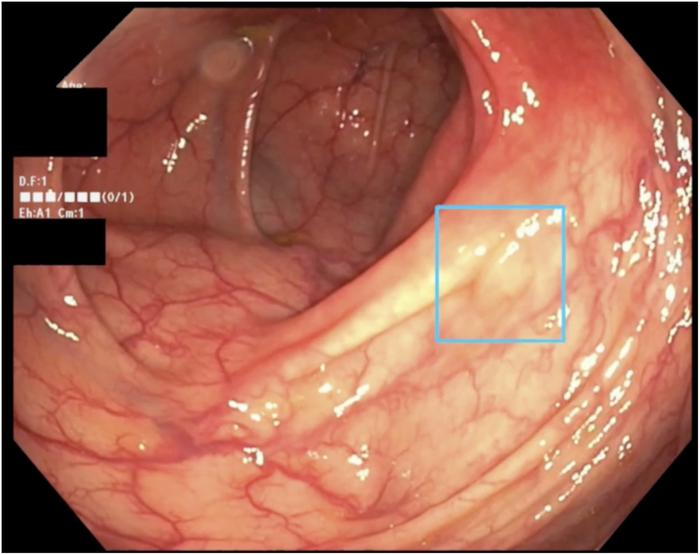The integration of artificial intelligence (AI) into the medical field has accelerated significantly in recent years, particularly in the realm of gastroenterology. One of the most promising innovations is the use of computer-aided detection systems (CADe) during colonoscopies, aimed at improving the identification of colorectal polyps. Recently, the American Gastroenterological Association (AGA) released a clinical guideline regarding the application of these systems, highlighting the urgent need for further research while delivering significant insights based on existing evidence.
Research has consistently shown that CADe technology enhances polyp detection rates, particularly when it comes to small or low-risk polyps, which can be easily overlooked by human eyes. Colorectal cancer remains a leading global health threat, ranking as the third most common cancer worldwide and the second most deadly. Thus, the promise of CADe systems in enhancing early detection is both timely and crucial for improved patient outcomes. AGA’s new guideline underscores the potential impact of AI on colonoscopy efficacy but also restricts definitive recommendations at this point due to unresolved questions regarding the ultimate benefit of technology in preventing cancer.
While colonoscopies are conducted over 15 million times annually in the United States, questions loom over how CADe’s enhancement of polyp detection correlates with actual reduction in colorectal cancer rates. The AGA’s cautious stance is due to the limitation of current evidence, indicating an encouraging upward trend in polyp detections but insufficient data to confirm a direct relationship with lower cancer incidence. According to Dr. Benjamin Lebwohl of the AGA, while CADe systems may facilitate increased identification and removal of polyps, the real challenge lies in translating these detection rates into significant reductions in cancer cases.
The emerging practice acknowledges that while the detection of numerous polyps is beneficial, the context within which these polyps exist is equally important. A predominant concern is that the current CADe systems tend to identify low-risk lesions that may not necessitate immediate intervention, leading to an increase in follow-up colonoscopies without clear evidence of improved overall patient health outcomes. Experts advise that confusion may arise in clinical settings as physicians determine which lesions warrant further examination versus those that might simply create unnecessary patient anxiety.
Moreover, while the findings encourage adoption of CADe systems, AGA emphasizes the lack of current recommendation for universal implementation across all practices. Experts like Dr. Shahnaz Sultan have noted the necessity for these AI systems to not only match but exceed human visual capabilities in detecting challenging lesions that may otherwise go unnoticed. The sentiment underscores a clear understanding that while technology serves as a promising ally, there is still a substantial journey ahead before confidence can be fully placed in its capacity to transform clinical practices effectively.
The AGA’s guideline reveals key knowledge gaps that warrant immediate attention in ongoing research efforts. One pressing area for exploration is the necessity of establishing concrete guidelines that help clinicians navigate the adoption of CADe technologies without the pressure of feeling compelled to integrate them prematurely. Instead, the focus should remain on real improvements in patient outcomes, emphasizing post-colonoscopy cancer occurrence rather than solely relying on raw detection numbers.
Another pertinent gap identified is the need for re-evaluation of surveillance practices that arise due to heightened polyp detection rates. The guidelines suggest rethinking the intervals for follow-up colonoscopies to avoid potential outcomes such as excessive medical resources being allocated towards screenings of low-risk patients while leaving high-risk populations under- or inadequately served. Transparency in AI research remains a paramount objective for the AGA, advocating for accessible data that can facilitate more accurate comparisons and advancements in the technology itself.
With colorectal cancer statistics continuing to paint a sobering picture, the stakes have never been higher. The relationship between precancerous polyps and cancerous growths is a critical area of understanding; effectively, it is from these polyps that colorectal cancer evolves over considerable time frames, typically a ten-year interval. Accordingly, the focus should extend beyond the initial identification of polyps toward the broader goal of enhancing early detection pathways and improving patient education surrounding the risks associated with various polyp types.
The guidelines set forth by the AGA signal an important step towards a future where AI can effectively play a role in preventive healthcare, facilitating better patient outcomes and potentially saving lives. The successful integration of AI technologies into clinical routines requires thorough investigations, capturing the nuances of individual patient profiles and their respective risks as well as fostering environments where continuous monitoring of advancements can genuinely inform practice.
In conclusion, while the integration of CADe systems into colonoscopy practices offers promise, the medical community must proceed with caution, ensuring a comprehensive approach that values outcomes over mere detection. The efforts led by the AGA exemplify a crucial balance between optimism for future advancements and a steadfast commitment to patient-centric care. By continuing to commit to rigorous scrutiny and ongoing research, the groundwork is being laid for a transformative future in the fight against colorectal cancer, combining human expertise with cutting-edge technology for the benefit of patient health.
Subject of Research: Computer-aided detection systems in colonoscopy
Article Title: AGA Living Clinical Practice Guideline on Computer-Aided Detection–Assisted Colonoscopy
News Publication Date: [Date not provided]
Web References: [Link not provided]
References: [References not provided]
Image Credits: Gastroenterology
Keywords: Colorectal cancer, colonoscopy, computer-aided detection, artificial intelligence, polyp detection, patient outcomes, gastroenterology.




